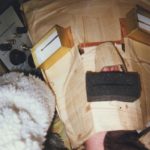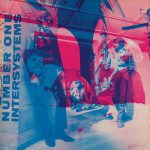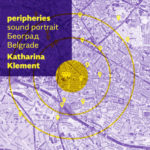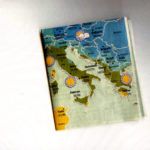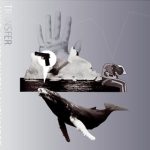Terra Prosodia
14,50 € VAT included
Only 2 left in stock
“Sound composition with dialects and disappearing languages from Europe.
With: George Cadéac, Nesa Engler, Don Eoil, Remy Graillon, Ingvar Larsson, Peter Meyer und Ingrid Wahlgren
Currently about 6000 languages are spoken on the world. Most of them will disappear soon – and together with them a meldodic richness of human expressivness. However, the fact, that dialects and disappearing languages are only spoken by a few people has one advantage: only if one does not understand the contents it is possible to really listen tot he sound, saying far away from their homeland these languages unfold their musical enchantment (charme?). What you find are melodies that nobody invented (conceived of?). They arise in the process of impulsive speaking, on the grounds of oral tradition. Landscapes seem to continue there with melodic heights and valleys. Often single sentences remain in our heads as catchy tunes.
In Terra Prosodia people tell a short spontaneous story based on a personal experience. Stories about storms, excursions, accidents and so on. Particularly speakers who have spent their lifes in remote valleys or islands often speak with much more distinct modulation. This expressiveness gets lost quickly one cou live in a big city.
In the compositions the contents of these stories do not matter any longer. The pieces focus on the melodies in the dialects and add second instrumental or hummed melodic voice. By this also the melody of the speaking voice is underlined. In the beginning the second voice will imitate the speaking voice, later becomes independent and follows own directions. As soon as the focus of perception is on the melody, you can listen to both lines as independent voices.
During my work I found out, that an even more exact decoding and mapping oft he intervals (which would be possible technically) on no account lead to better results. Quite the contrary the effect of a catchy tune that occurs when you remember the melodies is based on the fact the our brain is already during hearing looking for characteristic figures and intervals. Our ear behaves like the eye in a stalactite cave. In a vast array of stalactites and stalagmites we always remember nothing then typical single shapes. „Look, that looks like….“. Only this mechanism allows us to remember something of huge amount of shapes.
(Antje Vowinckel, translation: Chris Heenan)
Text by Christina Kubisch
Many things disappear and only then gets attention. Images, texts, sounds appear in archives in audio-visual documentations in the net.
But archiving the no more living existence is partial maybe even sometimes absurd or naive. Language only can remain vivid and interesting, if it is spoken everyday. When it is staying in a process of change, articulated by different persons, when it is depicting facts, information, thoughts, emotions and so on.
Antje Vowinckel’s Terra Prosodia makes happy and sad at the same time. The musicality of the spoken word sinks in even more by the melodical adaption as in case of pure listening of an unknown language. You admire the beauty and complexity. You instantly wish to speak one of these languages yourself for not leaving them to archivists and linguists but forward them to people who would use them in future.
In Terra Prosodia Antje Vowinckel succeeds in a wonderful mixture of a political important theme, a formally convincing process and a subtle and profound humour, that is hard to find. Once you have listened to the voices you will listen differently to spoken language in every day life.”







